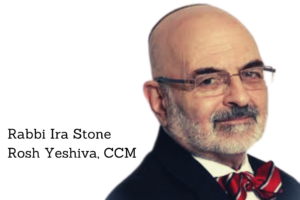 There are some Torah stories that we don’t realize are Rabbinic in origin. When we discover they are not actually in the Torah, we can hardly believe it. For example, many people are convinced that the Torah includes the story of Abraham smashing the idols in his father’s workshop to prove to his father that idols have no power. Famous as it is, it is not in the Torah.
There are some Torah stories that we don’t realize are Rabbinic in origin. When we discover they are not actually in the Torah, we can hardly believe it. For example, many people are convinced that the Torah includes the story of Abraham smashing the idols in his father’s workshop to prove to his father that idols have no power. Famous as it is, it is not in the Torah.
Another such story describes God holding Mount Sinai over the heads of the People of Israel where they gathered at the foot of the mountain. In the face of such coercion, when they are asked to accept the commandments of the Torah, they famously answer: “Na-ase V’nishma” [We will do and we will hear/understand]. Thus the Rabbis suggest that the acceptance of the Torah occurred under duress. The people were coerced into accepting the commandments. Does that not mean that such acceptance could be repudiated when the coercive power is no longer present? Are we, who are free from the fear of the mountain crushing us from above, no longer bound by the acceptance of the Torah by our ancestors?
Of course, there is another Rabbinic Midrash that may counter our sense of freedom from coercion. We are taught that not only were each of us at Sinai and each of us answered Na-ase V’nishma, but that in fact each year on Shavuot we are transported to a timeless Sinai to once again receive a timeless Torah and once again accede to the coercive power of the mountain. Thus, the question remains: what is the validity of a revelation accepted against our will?
This Rabbinic web of interpretation teaches a profound lesson. A lesson that human beings have always struggled with, and with which we continue to struggle. What comes first: understanding or obligation? Must we consider all our options before we agree to bear the other as our burden? If our reasoning powers suggest to us that we would be better served by looking out for ourselves rather than acting on behalf of the other, infinitely extended, should we not listen to our reason? How long would it be before we would actually decide to serve the other if we first had to understand fully the meaning of his or her burden? Aware of the fact that the illusion of complete freedom, freedom to decide everything for ourselves, is precisely what impedes our undertaking the responsibility that yields something more precious than freedom, holiness. The Rabbis understood that Na-ase V’nishma was and is the hallmark of our true humanity. They understood that what truly makes us human is our perception of obligations to the other even before we begin to construct our selfhood in thought. Reason could certainly be used, and is used, to refine the ways in which we respond to the other, but the primordial obligation is never absolved.
We imaginatively stand again at Sinai this coming week in order to re-experience the Voice that holds the mountain over our heads and to proclaim again what I would call the corporate Hineni (here I am) response: Na-ase V’nishma. May it inspire our continued service as it has for millenia.
